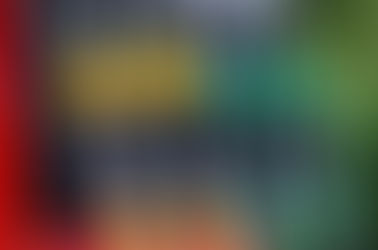A Picture Tells ......
- Jan 13, 2016
- 3 min read
Although we have known for some time that South Africa is facing severe drought conditions, and that the region itself is buckling under extreme water shortages, it was only when pictures of dead and dying livestock started appearing in the media that we were truly jolted out of our collective amnesia and started paying attention.
The facts are quite evident. South and southern Africa has been experiencing a drought for the past three years, and farmers across the region have been battling under worsening conditions throughout this time. Our dams are at their lowest levels in as many years and prospects of any relief have been dashed as El Niño continues to exert its effects on our climate. And yet we continue to regard water as a endlessly sustainable resource. Late - and even complete absence of rain hasn't seemed to curb the waste of water that we see every day, and collapsing infrastructure across the country simply adds to the problems that we we face.
In Zambia, a country almost entirely dependent upon hydro-electricity, the giant Kariba Dam which supplies most of this power is now at only 14% capacity and authorities have been forced to shut a number of generators down due to inadequate water flow. This has had a knock-on effect across that country, with factories, mines and other businesses reliant on electricity having to shut down or curtail their operations quite severely. Having experienced 'load shedding' ourselves, South Africans will appreciate the challenges and long-term consequences this has on the economy and yet we continue to treat this commodity with disrespect.
From Cape Town to Johannesburg, Bloemfontein, Pretoria and Durban, water restrictions are now in force as local authorities desperately try conserve what little they have in the face of rocketing temperatures and demand. Yet look at the gardens in your suburb on the way home today and notice how many people still irrigate their properties with scant regard for the restrictions that do exist - or have a look at that golf course alongside the road and marvel at the arrogance that is shown without consequence. Yes, it is a fact that alarmingly high volumes of perfectly drinkable water are wasted through leaks, burst pipes and corroded infrastructure, but pontificating about this and not doing something about our own consumption is pretty pointless.
When whole communities run out of water - as has happened in Aliwal North, Kimberley and other towns across the country over the past few months, it is perhaps time that we start listening a little more, and start making a real difference. We can’t expect or rely on the kindness of business and of other communities to truck-in water and animal feed to affected areas and think that the problem has been solved. We need to change our habits and gain greater understanding of the impacts that our daily activities have on people and animals far over the horizon.
In particular, bulk water users such as the manufacturing, hospitality and leisure sectors need to stop talking about water conservation, and make a change now before it is too late. The golf-course sector needs to understand that those millions of litres of fresh water being pumped onto greens and fairways cannot be justified any longer while people are dying and the farming community is being brought to its knees. A poll of thirty hotels in the greater Cape Town area this past week has shown that less than 15 percent of establishments are actually working towards meeting the City's call for a 20% reduction in consumption and no-one seems to care. It can't continue this way.
Ultimately, whatever the volume of water involved, the change needs to come from individuals - each one of us. Let 2016 be the year that we each take responsibility for reducing our consumption and for the protection of our limited and increasingly stressed water reserves. If we don't, the impacts will be with us for generations to come.





































Comments